15 ways to reduce plastic waste

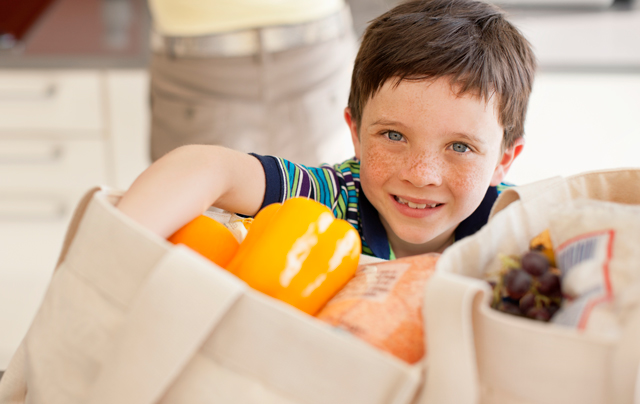
Plastic waste has reached critical levels and it’s not just affecting the environment – it’s in the water we drink, the food we eat and even the air we breathe. But there are ways to combat the problem.
PM Theresa May called it ‘one of the great environmental scourges of our time’ and banned avoidable plastic waste by 2042; supermarkets are reducing packaging, ensuring all carrier bags are recyclable and excluding products with microbeads; and consumer goods giant Unilever has pledged that all plastic packaging is reusable, recyclable or compostable by 2025.
At a grassroots level, Penzance has become Britain’s first plastic-free town and 330 towns aim to do the same. But while these changes are positive Louise Edge, a campaigner at Greenpeace, believes ‘more radical and comprehensive policies’ are needed and on a global scale.
Last year, National Geographic reported that since manufacturing began 60 years ago, 8.3 billion metric tonnes of plastic has been produced. Of that, a study conducted at the University of Georgia in the US calculated that just 9 per cent was recycled, meaning 91 percent ended up in landfills or oceans. That waste will take at least 400 years to decompose.
If that isn’t worrying enough, the same study predicted that by the mid-century there’ll be more plastic in our seas than fish. It also litters our beaches – in 2008, 50 percent of litter found on British beaches was plastic – and having a devastating effect on wildlife.
Since the Plastic Free July campaign launched in 2011 it’s encouraged millions of individuals to change their behaviour. The #choosetorefuse challenge inspires people and communities to reject single-use plastics with the intention that businesses, industry and governments will follow suit.
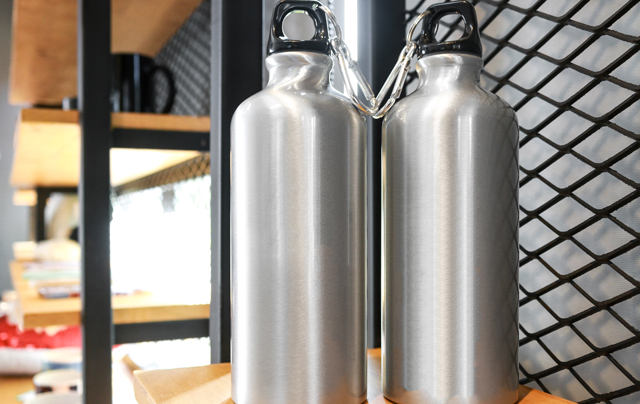
The average family throws away about 40kg recyclable plastic every year. Here are ways you can reduce plastic waste
Parenting advice, hot topics, best buys and family finance tips delivered straight to your inbox.
1. Switch to reusable coffee cups
According to Greenpeace we throw away 2.5 billion coffee cups a year in the UK and of those less than 1 in 400 are recycled. Worldwide, that figure increases to a mindboggling 100 billion annually. Disposable paper cups may seem fairly easy to recycle but they usually have a waterproof lining, which is plastic. Fortunately, if you now take a reusable coffee cup or Thermos to a number of coffee shops you’ll be rewarded for bringing your own: Pret A Manger offers 50p off the price of hot drinks; Costa and Starbucks a 25p discount, while Caffe Nero’s incentive is double loyalty stamps. If you prefer local and independent coffee shops check their policy and if they don’t have one suggest it.
2. Avoid packaged produce
Buy loose fruit and veg from supermarkets and grocers (bonus: it’s often cheaper) and meat, fish and cheese from butchers, fishmongers and delis, or from supermarket counters rather than chilled sections. To minimise packaging use your own reusable or compostable bags, or food storage such as stainless containers. Look into box schemes such as Riverford, which largely deliver loose produce in paper bags or in recyclable materials, or take advantage of farmers’ markets and local allotments. If you live near shops that sell in bulk, take your own containers to fill.
3. Carry reusable shopping bags
An estimated 13 billion plastic carrier bags are used in the UK every year, and a staggering 500 billion worldwide. Only a small amount of these are recycled or recyclable. Plastic bags are dangerous to the animals that become entangled or eat them – in May, several sperm whales in the Mediterranean died from ingesting plastic bags. Use bags made from durable natural fabrics such as jute, canvas or cotton or even strong paper. Some reusable bags such as nylon fold-ups contain some plastic and all products have a carbon footprint but they are still superior in terms of reducing plastic waste.
4. Ditch plastic straws
There is currently a global movement to ban plastic straws, which are now regarded as one of the most wasteful of all plastic products. In the USA 175 billion plastic straws are discarded every year; worldwide it’s billions more. To reduce your plastic waste, don’t accept straws in bars, fast food joints and restaurants and at home use biodegradable paper or edible straws instead. Reusable silicone, bamboo, glass and metal straws are also readily available and easy to carry in your bag, making this change a quick and painless one.
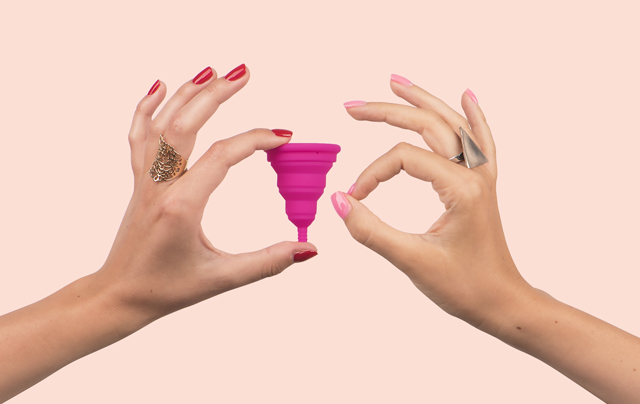
5. Aim for zero waste periods
Many of us don’t realise that sanitary and incontinence protection is adding to plastic waste. The products we use (on average, 11,000 in a woman’s lifetime) contain plastic and chemicals that damage biodiversity. As talking about periods is uncomfortable for some and still taboo in certain cultures finding alternatives has been tricky but today there are excellent options: silicone menstrual cups (OrganiCup, Mooncup); period pants (Modibodi, Wuki); Lunapads and other reusable pads; biodegradable 100% cotton tampons (TOTM) and a reusable applicator from DAME. Women can also write to manufacturers of regular sanitary ware demanding less packaging and chemical-free products.
6. Give up gum
According to Just One Ocean chewing gum is responsible for 100,000 tonnes of plastic pollution every year. Originally, gum was made from resin and then a tree sap called chicle until these natural ingredients were replaced with a synthetic substitute in the 1950s – an oil-based polymer that is a plastic. For plastic-free gum try Chewsy Gum and Chicza, both of which come in a range of flavours.
7. Relinquish shop-bought crisps
You may be partial to a salty snack but most crisp packets contain plastic and are not currently recyclable, meaning they go straight to landfill. Recycle Now recommends conducting the scrunch test –scrunch up an empty crisp packet in one hand and release; a recyclable foil packet will remain crumpled while one containing plastic will unfurl. Difficult as it may be, until crisp manufacturers change their packaging consider making your own crunchy munchies instead. Why not try our homemade pitta crisps or vegetable crisps.
8. Invest in resuable drinking bottles, a filter, and a Soda Stream
One of the world’s most discarded items is plastic bottles. Globally, 1 million are bought every minute and by 2021 half a trillion will be produced every year. To stop contributing to this plastic pile-up don't buy from drink brands as they produce the greatest number, and use reusable bottles made from stainless steel, silicone or recycled plastic. If you’re not keen on tap water buy a filter jug or a filter that attaches to the kitchen tap while sparkling water fans should buy a SodaStream to carbonate water.
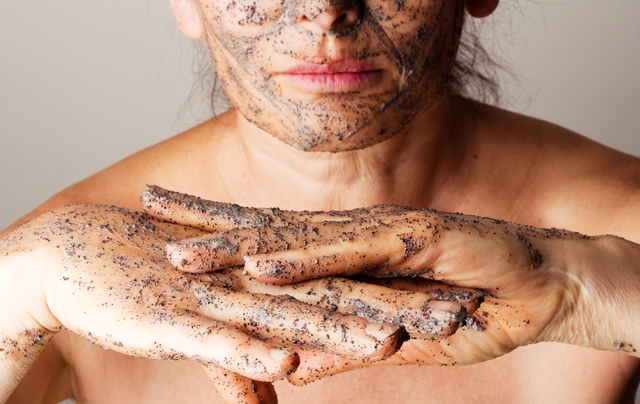
9. Boycott products containing microbeads
Microbeads – which can be found in exfoliating face wash and toothpaste – are made from a microplastic that gets past water treatment centres, pollutes our oceans and harms sealife. A UK ban came into effect in 2018 but it’s still worth checking the ingredients list before buying – polypropylene (PP) and polyethylene (PE) are just two materials you should avoid. Check products against Beat the Microbead's list or make your own exfoliators from natural coarse ingredients such as salt, sugar, pulverised nuts, coffee grounds and oats.
10. Give an eco-friendly party
If you want to give back while giving a party there are simple ways to make a celebration plastic-free. Use bamboo cutlery and plates, compostable cups and straws, biodegradable balloons and ribbon, cotton bunting and party banners, and decorations made from coconut hair. Fill paper party bags with wooden toys instead of plastic ones and wrap gifts in children’s artwork, old magazines, cloth, or a reusable basket or box. Little Cherry sells eco-friendly party and wedding supplies.
11. Make lunch an eco meal
Taking a homemade lunch or leftovers to work not only prevents you from buying packaged lunches it’s significantly cheaper. Treat yourself to a metal tiffin or bento lunch box or one made from bamboo or another sustainable material and if you’re having sandwiches wrap them in reusable sandwich bags made from cloth, paper or wax wrap. Decided to eat out or have clients to entertain? Visit the Sustainable Restaurant Association website for eateries around the UK that have pledged to reduce food and plastic waste.
12. Source plastic-free food storage
Plastic food and drink storage is a major contributor to waste but changes are afoot. In March 2018 it was reported that the takeaway industry is making changes. Just Eat stated a reduction in the use of plastic and research into alternatives, and Deliveroo promised to use its clout to persuade restaurants to cut the use of plastic and will also offer restaurants sustainable packaging options. At home use glass or ceramic containers, stainless steel storage, and beeswax wrap instead of Clingfilm to reduce your plastic waste. BPA-free silicone is used to make stretch lids or reusable sandwich and freezer bags and while it’s not biodegradable it’s very durable and can be recycled.
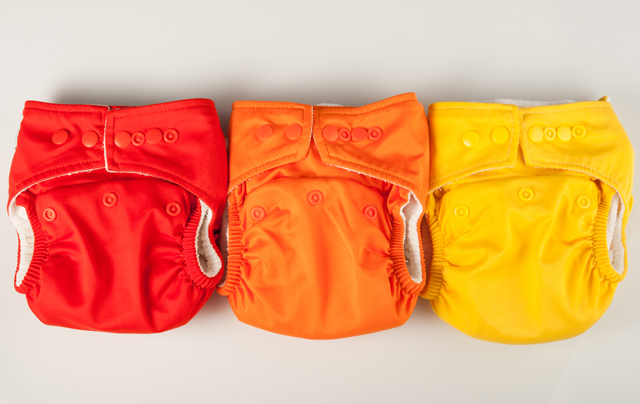
13. Parents, switch to cloth nappies
Disposable nappies may be convenient but 8 million are thrown out daily in the UK and currently account for around 3-4 percent of all household waste. According to consumer champions Which? switching to reusable nappies will result in 5,000 less nappies per child being discarded. Choose between biodegradable nappies, which are not only better for the environment they may be kinder on sensitive skin, or cloth nappies – these are fitted with Velcro tabs or poppers rather than pins and although they need washing they’re cheaper than disposables and are more leak-free than ever.
14. Drink loose tea
It may come as surprise but Britain’s national drink is also under scrutiny. Many tea brands use a type of plastic called polypropylene to seal tea bags and – as the vast majority of the 165 million cups of tea drunk in the UK each day are made with bags – that means many of us are imbibing microplastic. The good news is that PG Tips are now biodegradable while Co-op’s Fairtrade bags will be by the end of the year, and other brands are becoming more eco-friendly. Alternatively, switch from bags to loose tea and use a tea infuser or teapot or buy your own fabric bags to fill to reduce your plastic waste.
15. Scoop poop without harming the planet
Wonderful as they are, our beloved pets also contribute to plastic waste. Using biodegradable poop bags and litter tray liners is a step in the right direction but there are also biodegradable litter trays on the market and litter made from compostable materials such as wood pellets that can be added to the compost heap rather than chucked in the bin. Bamboo water and food bowls as well as eco-friendly toys and grooming products are also easy to find online.

Debra Waters is an experienced online editor and parenting writer. She also has a strong background on health, wellbeing, beauty, and food. She currently writes for Goodto and Woman&Home, and print publications Woman, Woman’s Own, and Woman’s Weekly. Debra has written for What to Expect, Everyday Health, and Time Out. In addition, she has had articles published in The Telegraph and The Big Issue.